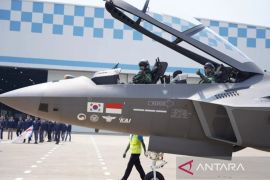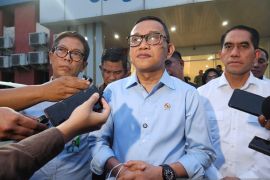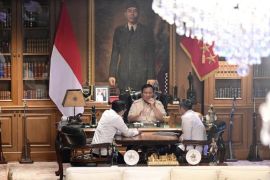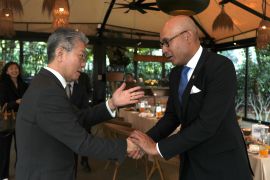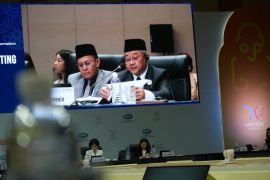The reform measures, unveiled by Defense Minister Kim Kwan-jin in March, call for a 15-percent cut in the number of general-grade officers by 2020 to make the top command structure of the 650,000-member military slimmer but more efficient. There are some 430 general-level officers leading the military.
The moves come after the North Korea`s two deadly attacks on South Korea last year, which left 50 South Koreans, including two civilians, dead.
"Under the proposed plans, some 30 general-grade officers, including a four-star position in the Army, will be eliminated by December 2015 when reforming the top command structure is completed," the official said on the condition of anonymity.
"Another 30 general-grade officers will be reduced by 2020 when the ministry completes the changes in the organizational structure of the military units," the official said.
Defense Minister Kim ordered his staff to review which top positions should be eligible for the reductions, and the review will be completed by the end of next month, the official said.
Reforming the top command structure will take place in stages until December 2015, when South Korea is scheduled to retake wartime operational control over its troops from the U.S., officials said.
Another key part of the reform measures is to enhance the interoperability among the Army, Navy and Air Forces as the North`s two attacks showed the weakness of the South`s Army-dominated military.
In a bid to address the shortcomings, the ministry is pushing to allow the chairman of the Joint Chiefs of Staff (JCS), who wields operational control over all military personnel, to have the additional authority of managing the personnel.
Under the current command structure, each chief of staff of the three branches has the power to manage their own troops. The lack of authority in personnel management for the JCS chairman has long been cited as one of the major factors hindering the interoperability of the troops.
However, retired four-star generals of the Navy and Air Force have decried the move, claiming it could weaken the ability of the Navy and Air Force chiefs to lead their troops because only Army generals have traditionally assumed the JCS chairmanship.
Mindful of the looming resistance from retired generals, the ministry will hold briefing sessions this week by inviting some 600 retired general-grade officers.
In addition, the ministry plans to hold a public debate early next month with ordinary people to explain the reform measures and gather public opinion, ministry officials said.
In a recent directive to the military, Defense Minister Kim renewed his pledge to carry out the measures, saying that reforming the military was not a matter of choice, but a must.
Portraying the current top command structure as "bulky and administrative," Kim said the top priority for the command reform is to allow the military to "respond to realistic security threats in an active manner."
Ministry officials said the command reform will be implemented in four stages. First, specific details will be drawn up by the end of this year. Chiefs of each military branch will be fully under the direction of the JCS chairman by Dec. 1, 2012.
By Dec. 1, 2014, headquarters and operational commands of the Army, Navy and Air Force will be consolidated into three major operational commands. Currently, there are five operational commands in the Army, two in the Navy and one in the Air Force.
Reforming the top command structure will be completed by Dec. 1, 2015, in line with the deadline for a handover by Washington to Seoul of wartime control of South Korean forces, ministry officials said.
As a legacy of the 1950-53 Korean War, the wartime operations of South Korean troops remain under the control of the top U.S. military commander in the country. Some 28,500 U.S. troops are stationed in South Korea.(*)
Editor: Aditia Maruli Radja
Copyright © ANTARA 2011
